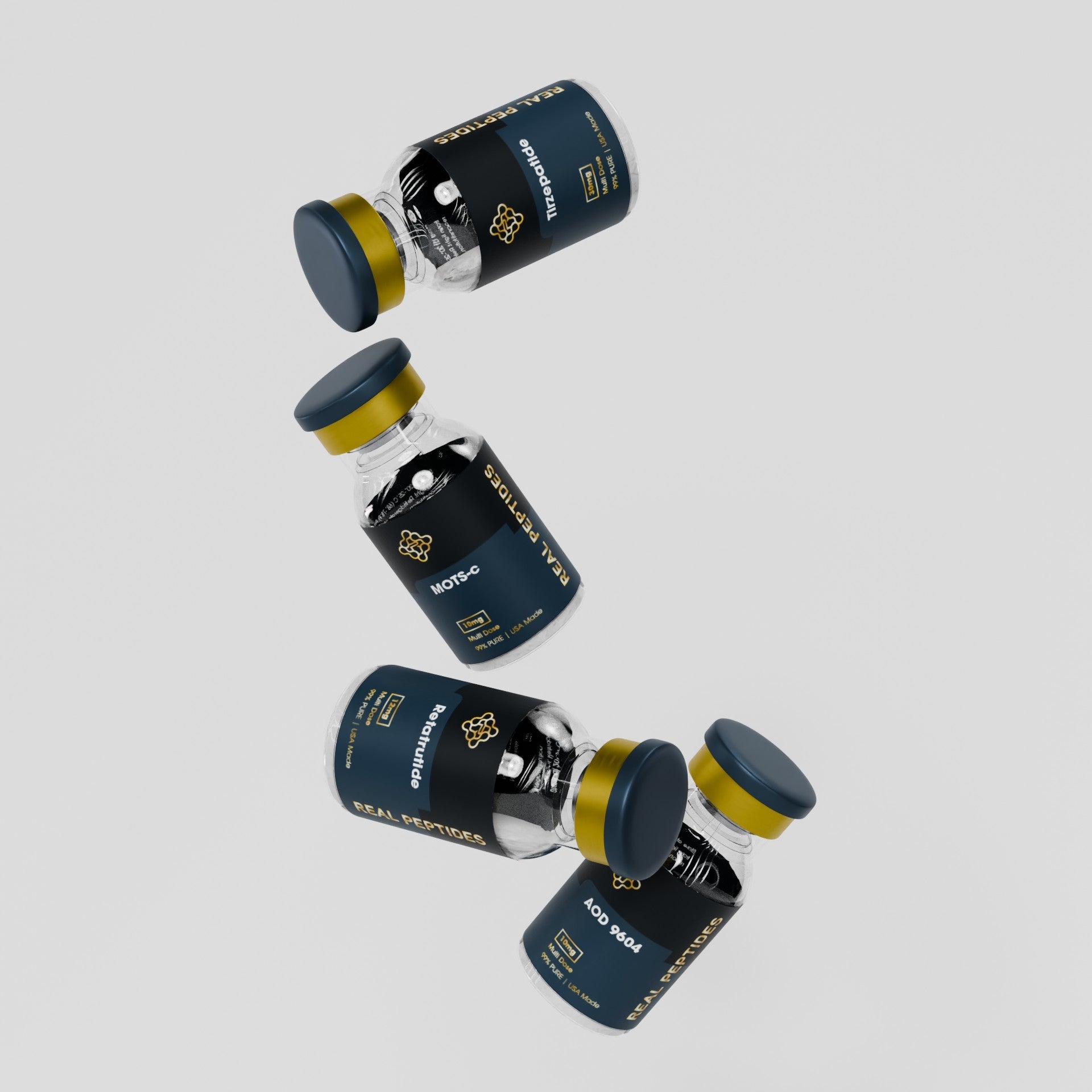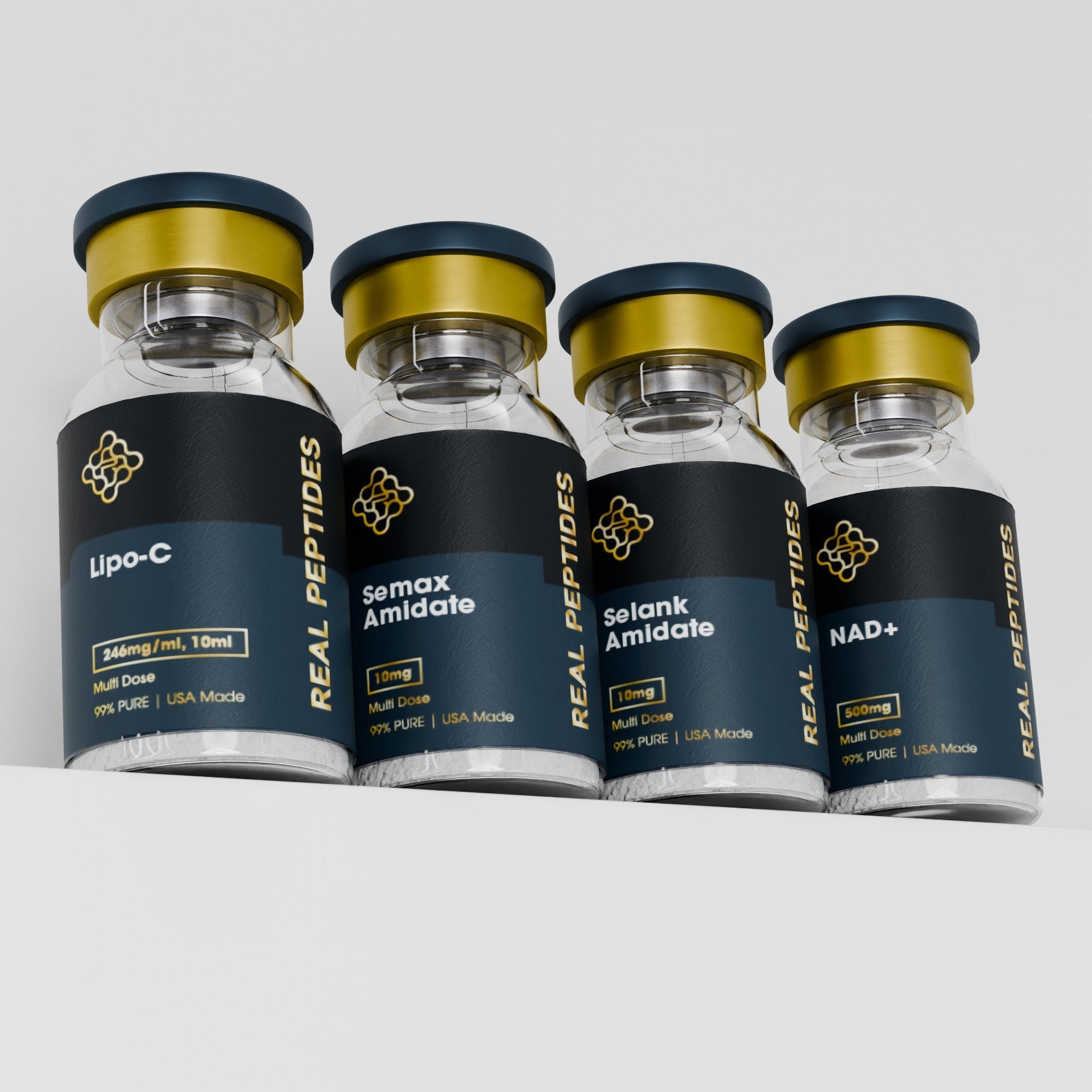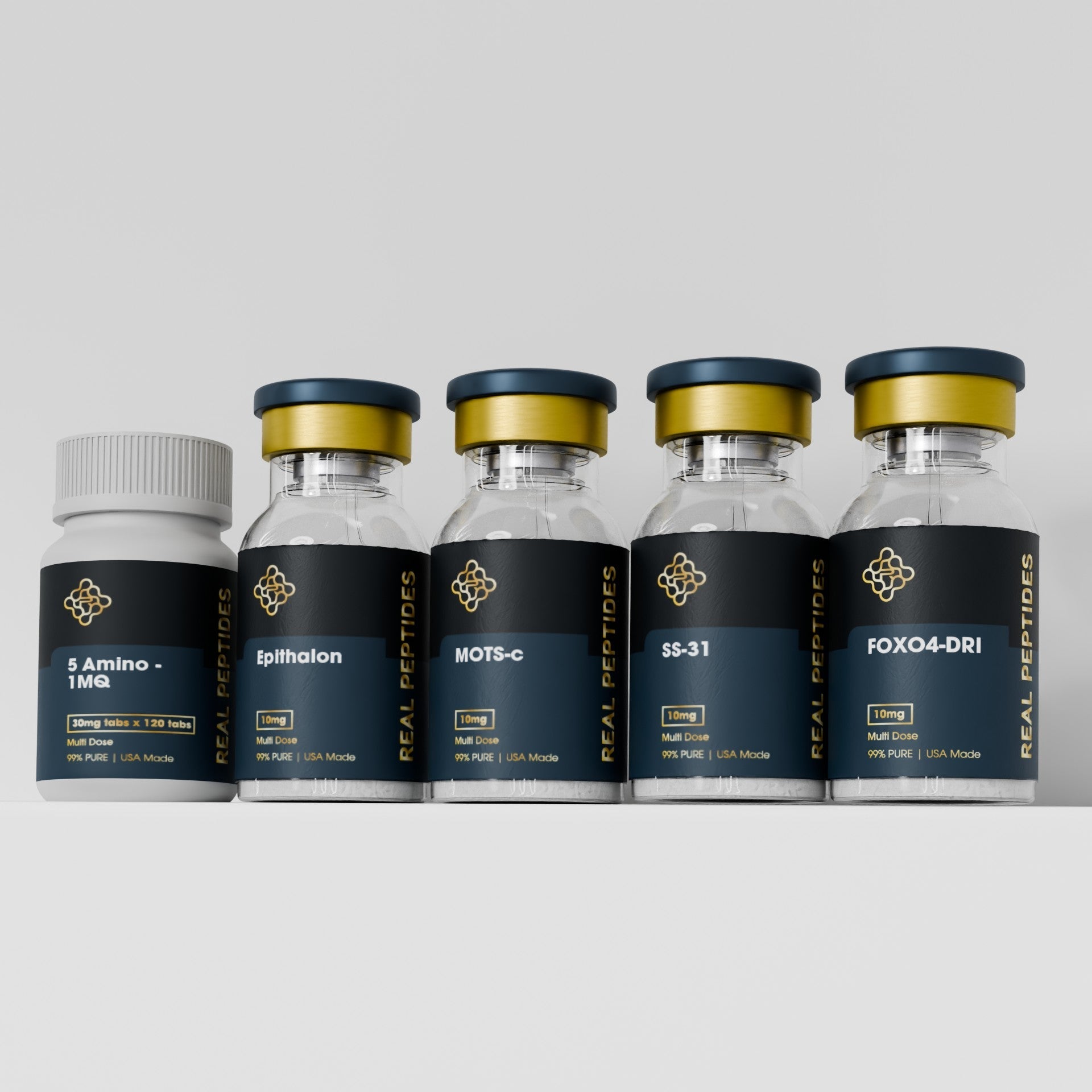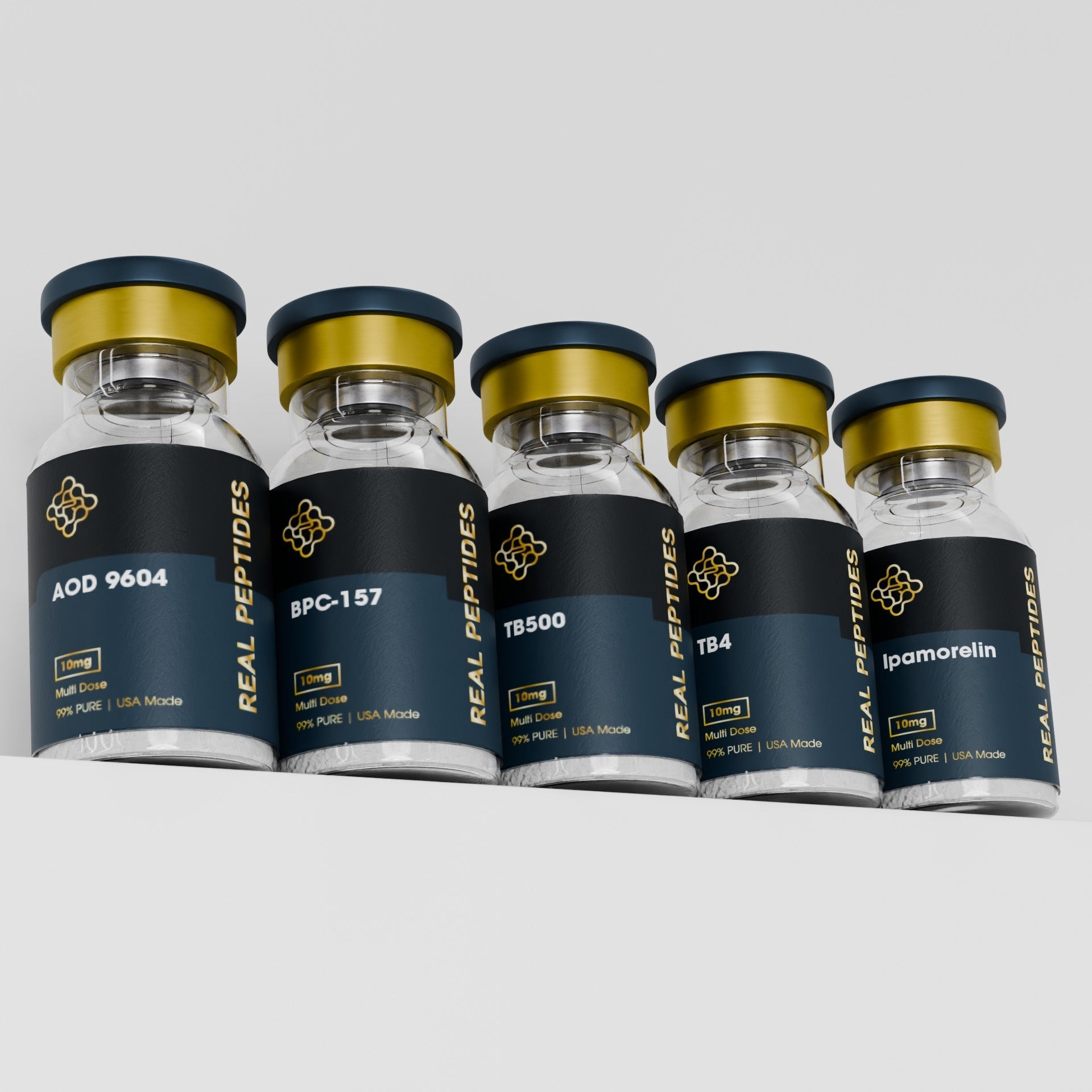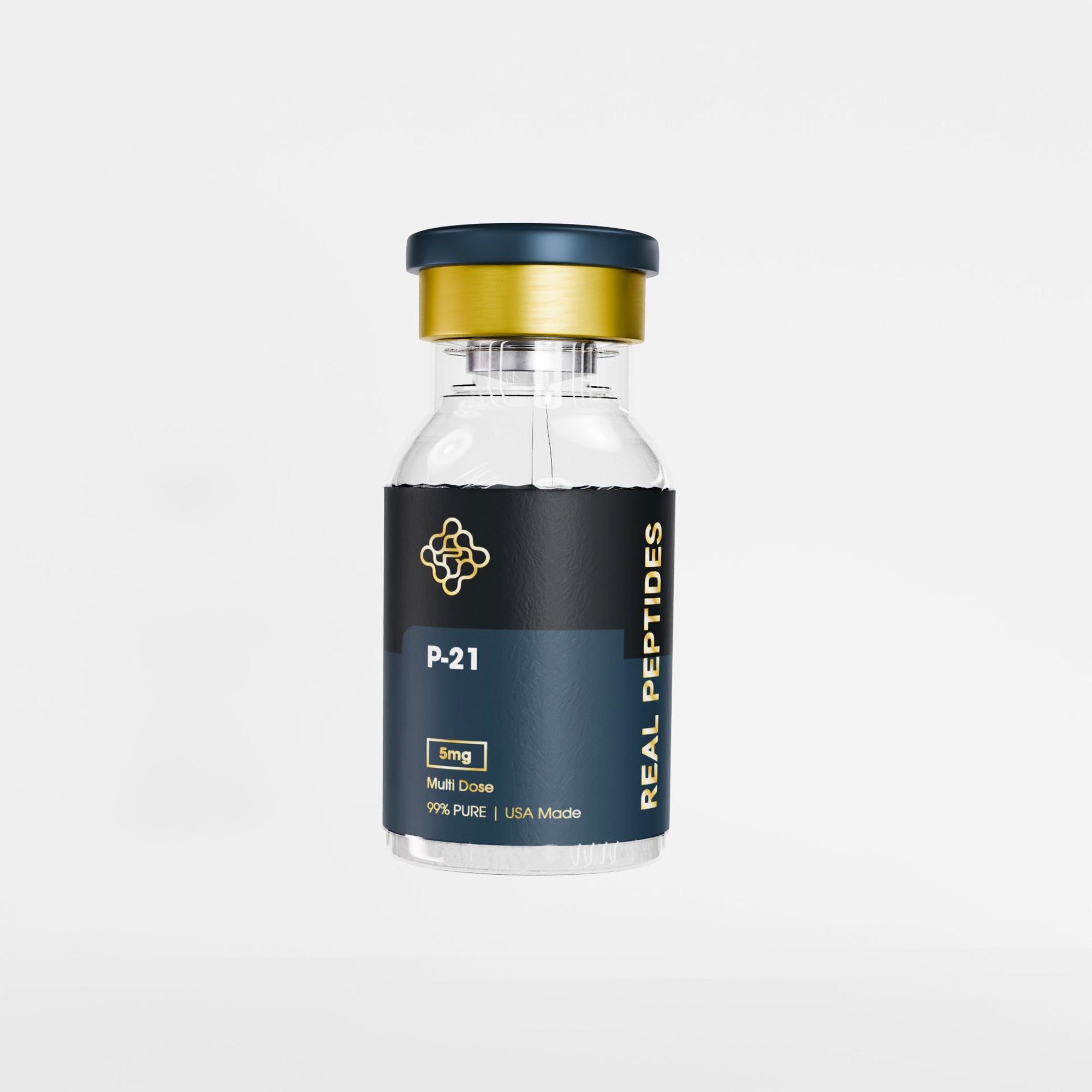
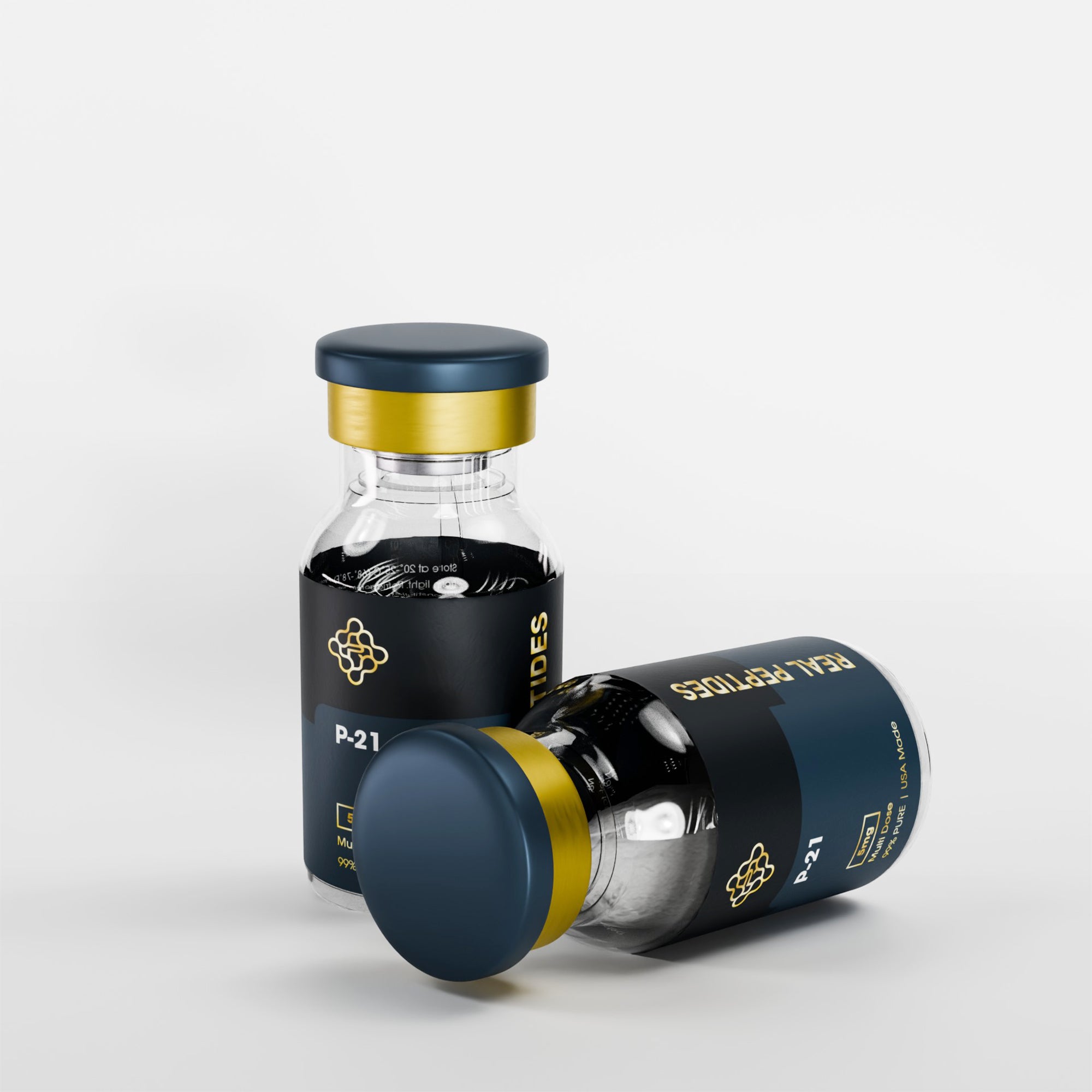
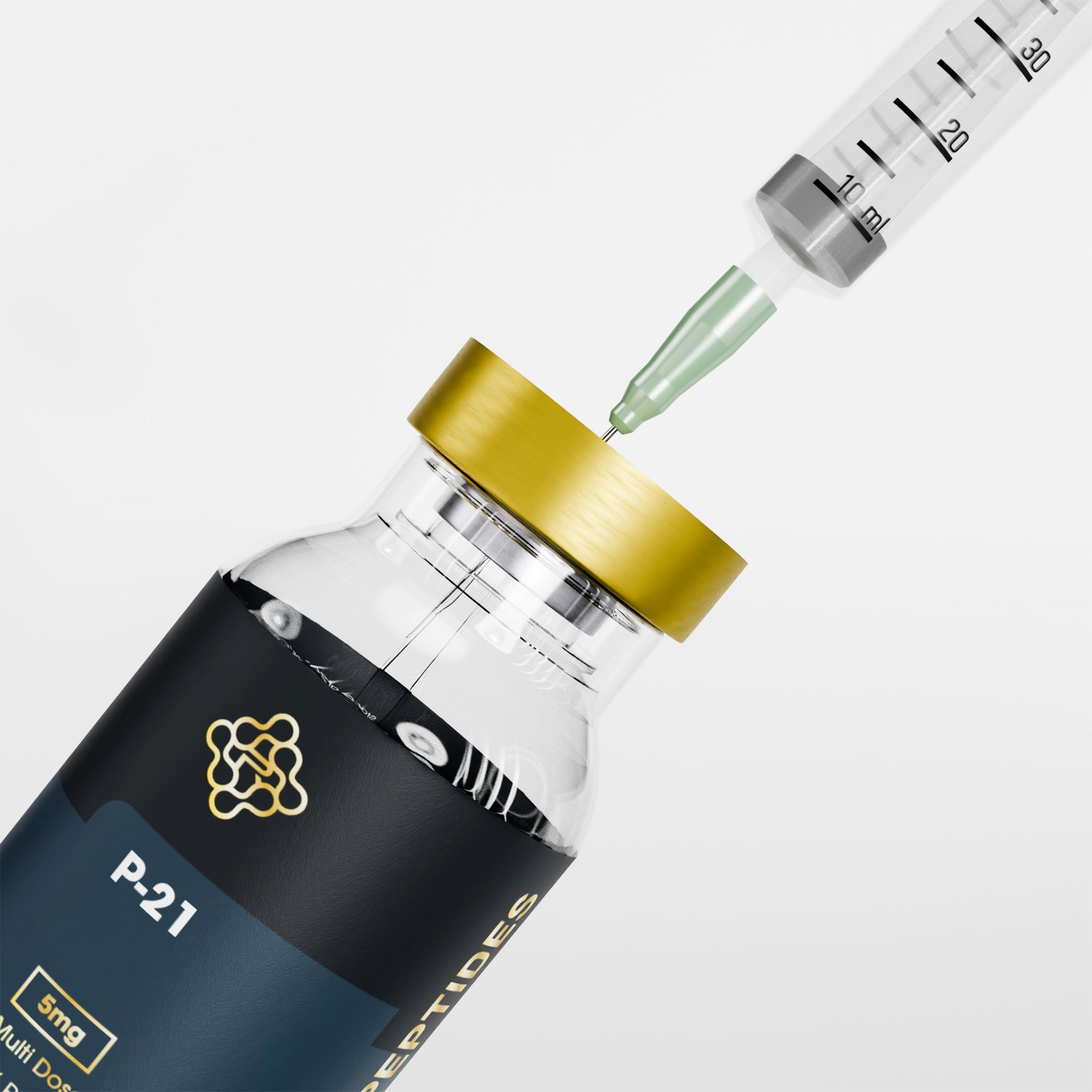
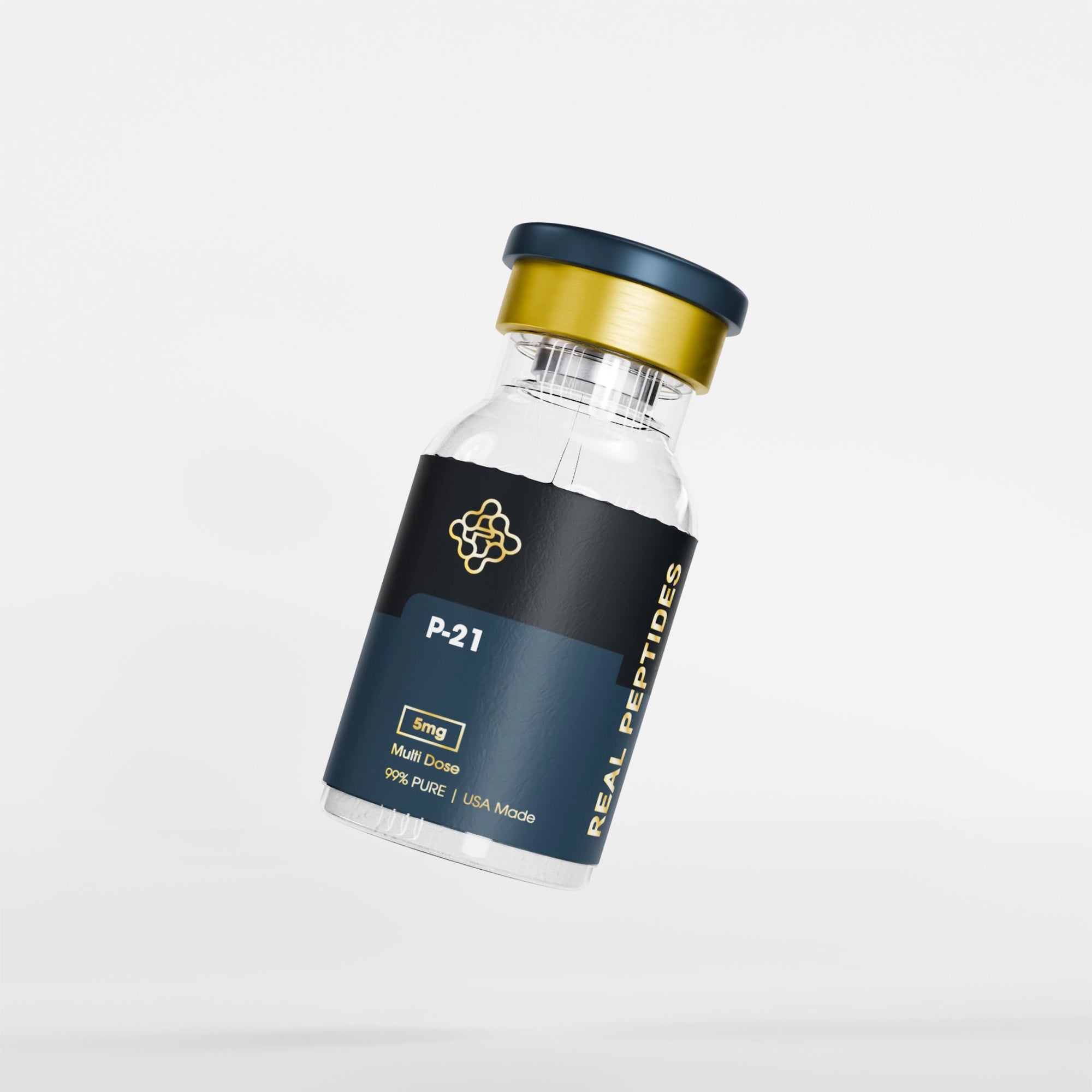
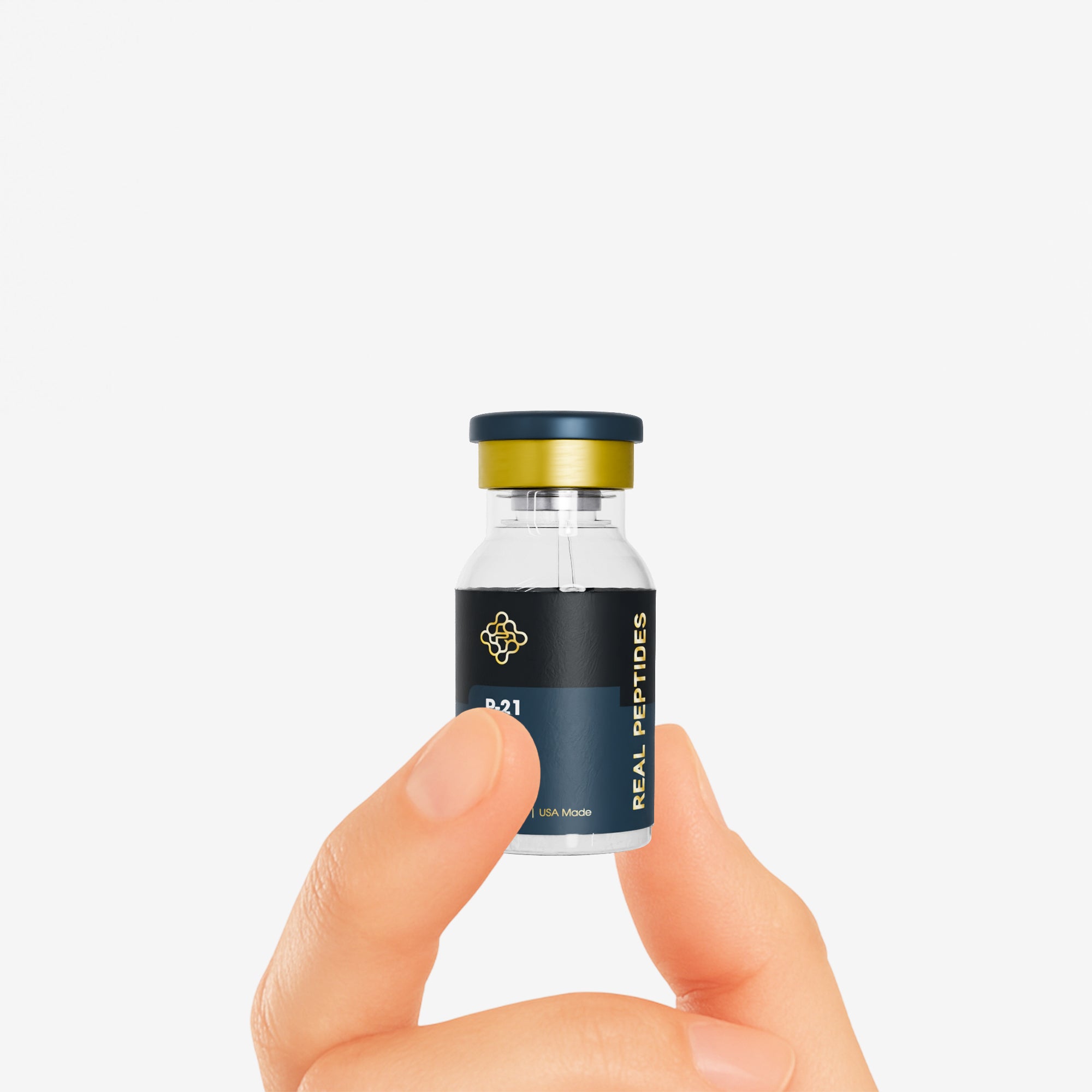
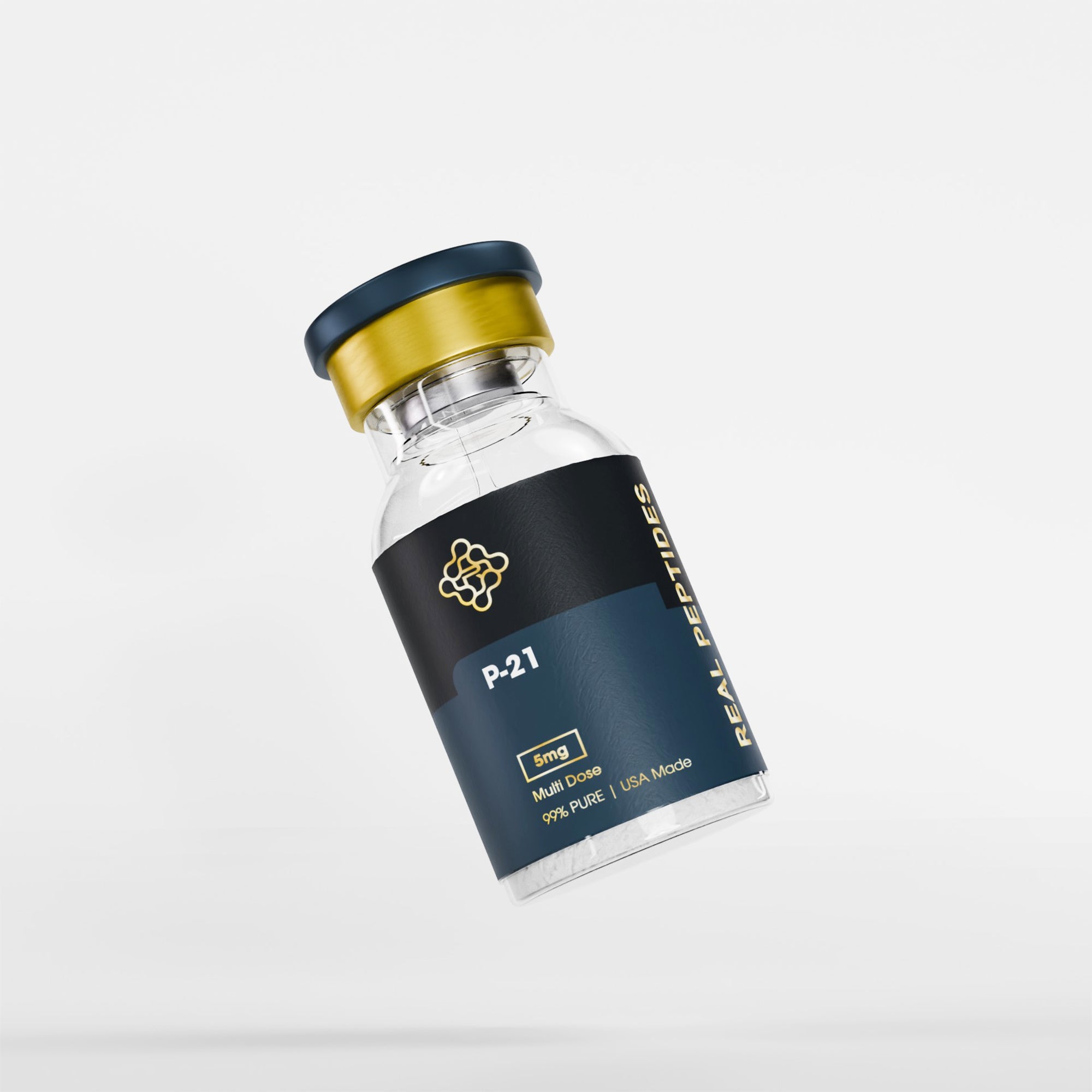
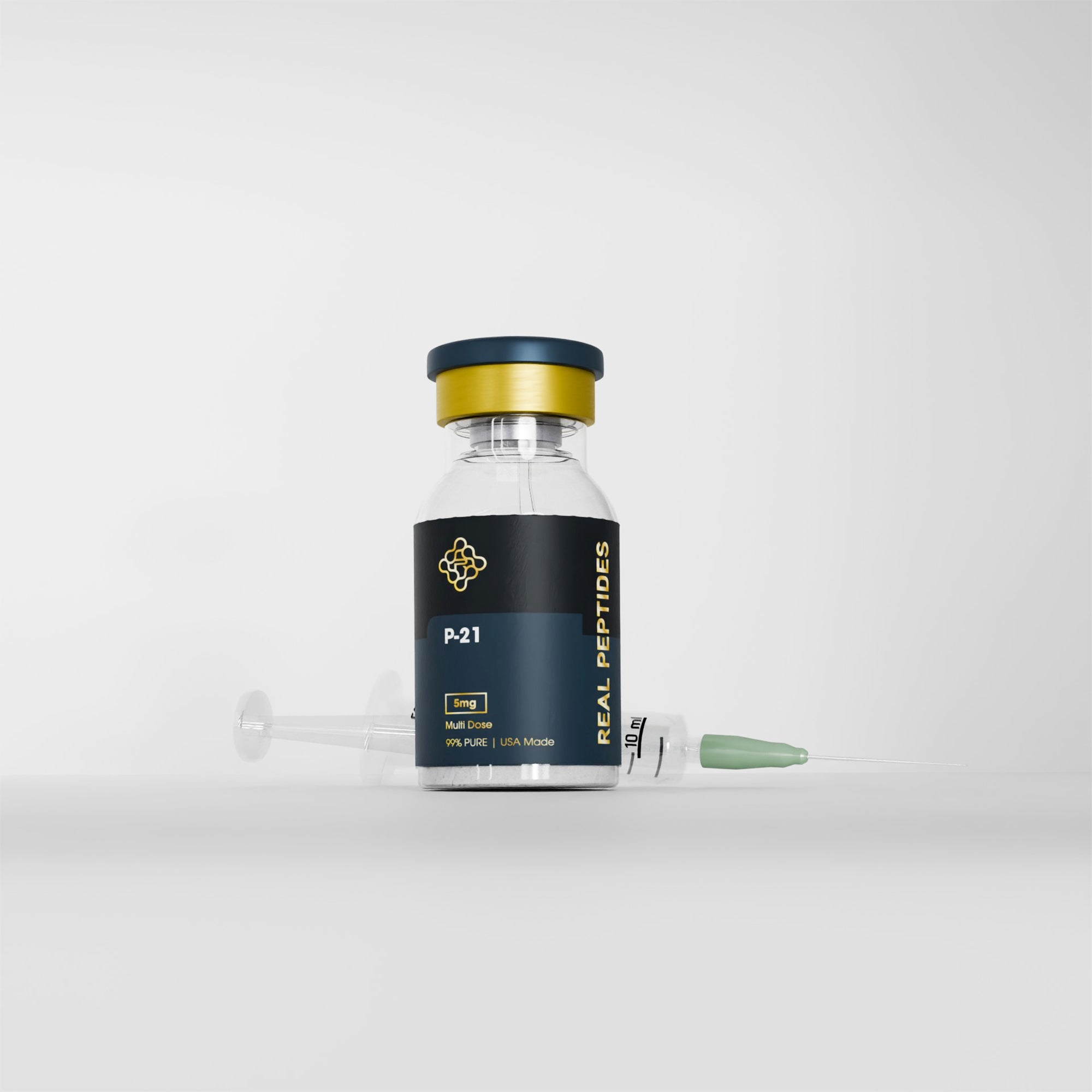
P21
p21 is a key cell-cycle regulatory peptide that lets labs explore cell-cycle arrest, DNA-damage response, and senescence pathways with precision. Each 5 mg vial delivers a ready-to-use peptide that reliably induces p21-mediated checkpoint activation in cell cultures—no extra factors, no guesswork. USA-made, HPLC-verified at ≥ 99% purity, and endotoxin-screened (< 0.1 EU/mg), p21 gives you crisp, reproducible data every time.
⚠️ Important Disclaimer
For Research Use Only. Not for human consumption or therapeutic treatment.
Pairs well with
Peptides are not ready to use. Must purchase BAC water for reconstitution.

P21
P21
KEY HIGHLIGHTS
Checkpoint Activation
Induces p21-driven G1/S arrest in proliferating cells, making it easy to model cell-cycle checkpoints.
DNA-Damage Response
Amplifies p53–p21 signaling in DNA-damage assays, helping you track repair kinetics.
Senescence Studies
Promotes biomarkers of cellular senescence (SA-β-gal, p16) in fibroblast and epithelial cultures.
Tumor-Biology Models
Supports investigations of tumor-suppressor pathways in cancer-cell lines.
Signal-Pathway Clarity
High specificity for CDK inhibition ensures your results focus on p21’s role, without off-target effects.
Easy Prep & Storage
Lyophilized powder—reconstitute in sterile water, store at 2–8 °C, and use within 7 days for consistent activity.


What Is p21 Peptide?
p21 (also called CIP1/WAF1) is a naturally occurring 21-amino-acid peptide that binds and inhibits cyclin-dependent kinases, enforcing cell-cycle arrest. In research, p21 peptide is used to dissect cell-cycle regulation, DNA-damage checkpoints, and senescence mechanisms under tightly controlled lab conditions.

Why Choose p21?
Choose p21 when you need a straightforward, single-reagent solution for cell-cycle and senescence research. Its reliable induction of G1/S arrest and clear activation of DNA-damage pathways make it ideal for mapping tumor-suppressor functions, screening genotoxic agents, or studying aging at the cellular level. Manufactured under ISO standards and verified to ≥ 99% purity, p21 peptide ensures your experiments run smoothly every time.

What Sets p21 Apart?
Unlike broader cell-cycle inhibitors, p21 peptide offers high target specificity and physiological relevance—mimicking the natural inhibitor that cells use to pause proliferation after stress. Its clean, short-acting profile minimizes off-target kinase effects, giving you precise control over checkpoint activation and senescence modeling.
P21 FAQs
What is p21 peptide used for in research?
To study cell-cycle arrest, DNA-damage response, and senescence in cell and tissue models.
How does p21 induce checkpoint arrest?
By binding CDK2/cyclin E complexes, it halts the G1–S transition and activates DNA-repair pathways.
What concentration is typical in vitro?
Researchers often use 1–10 µM, adjusted per cell type and assay design.
Can p21 promote cellular senescence?
Yes—treated cells show increased SA-β-gal staining and upregulated p16 levels.
Does p21 affect other kinases?
It’s designed for CDK inhibition, with minimal off-target kinase interactions.
How is p21 peptide reconstituted?
Dissolve in Sterile Water for Injection, mix gently, then use immediately or store at 2–8 °C.
What storage conditions are required?
Store powder at –20 °C; use reconstituted solution within 7 days at 2–8 °C.
Can p21 be combined with genotoxic agents?
Yes—it’s often used alongside DNA-damaging compounds to study checkpoint activation.
Is p21 approved for therapeutic use?
No—strictly for research use only, not for clinical or veterinary applications.
Where can I buy p21 peptide?
Real Peptides offers ISO-certified, USA-manufactured p21 peptide (5 mg), ≥ 99% purity, and low endotoxin—available for research use only.

